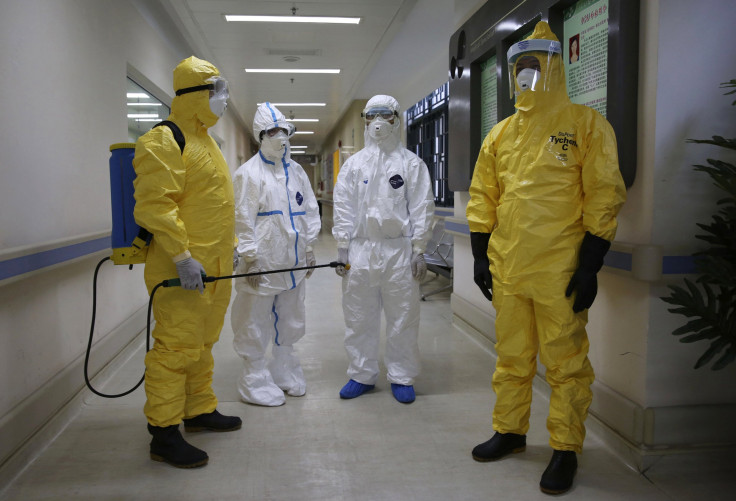China Takes A Page From SARS To Deal With Ebola Outbreak

Global fears of the spread of the deadly Ebola virus have picked up steam, and China has joined other governments in attempting to implement a protocol to keep citizens safe from the disease without creating panic. On Friday, China’s National Health and Family Planning Commission, NHFPC, ordered local governments to conduct assessments of their preparedness for Ebola cases.
Because China has not yet been hit with any confirmed cases of the disease, mass perception of the disease is still relatively manageable. Still, the country hopes to use lessons learned from the Severe Acute Respiratory Syndrome, or SARS, pandemic that struck China in 2003, beginning with honest communication among government bodies. According to a report by Grant Hill-Cawthorne, a medical virologist and professor of communicable disease epidemiology at the Marie Bashir Institute for Infectious Diseases and Biosecurity at the University of Sydney in Australia, communication errors from the SARS outbreak have been corrected.
According to the South China Morning Post, the NHFPC is asking local authorities to keep detailed databases of people who have been in close quarters with people suspected or confirmed to have contracted Ebola, and it has designated certain hospitals to handle such cases. China had a preliminary plan in place when Ebola was appearing just in West Africa. The same health commission began distributing protocols on diagnosis and treatment to provincial health departments as early as August in the wake of growing death toll in Liberia, Guinea and Sierra Leone.
Hill-Cawthorne points out that while the panic surrounding SARS was mostly because of the ease of transmission “via respiratory droplets and fomites,” Ebola has already taken more lives than SARS did.
At least 4,400 people have died from Ebola of a total 9,000 confirmed cases. On the other hand, SARS was responsible for around 1,000 global deaths, out of an estimated 10,000 confirmed cases. He explained that while SARS spread quicker than Ebola, hitting 30 countries in just a few weeks, the global community quickly learned that dealing with an outbreak meant relying on all arms of the government and international cooperation: “Emerging infections were no longer viewed as a health care problem but as a whole-of-government problem with strong coordination required between transportation, immigration, communications, finance, water and sanitation, defense, housing and education.”
The report also explains some tactics that won’t work, or at least, make things difficult for health workers. While calls for airport screenings and other travel restrictions are being considered, Hill-Cawthorne warns that limitations could only make it more difficult for the global community to provide aid, supplies, or health care needed to get the outbreak under control.
© Copyright IBTimes 2024. All rights reserved.





















